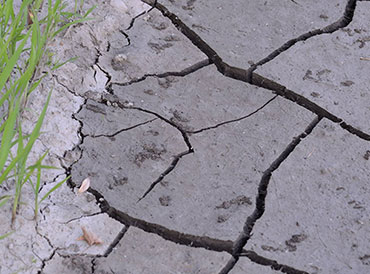The consequences of drought are far-reaching, with implications for water quality and ecology in rivers, lakes and reservoirs. Low flow conditions might result in limits to effluent discharges as rivers lack the volume of water necessary to dilute, whilst drought conditions will reduce the volumes of water that can be abstracted before habitats are negatively affected.

We are developing new methods to model and characterise the behaviour of intermittent river reaches and ephemeral streams, so that the ecological effect of hydrological extremes, climate change, and local artificial influences such as abstraction and catchment management, can be appropriately assessed.
Our water quality modelling tools are used routinely to address water industry questions relating to river, lake and reservoir management under current and future climates, and have been run to assess the raw water quality deterioration within storage reservoirs during drought scenarios.
UKCEH is able to draw together the breadth of expertise required to assess these consequences in a joined-up fashion. We provided the major input to the Environment Agency’s 2013 review of drought impacts, which included river, lake, wetland and pond habitats.